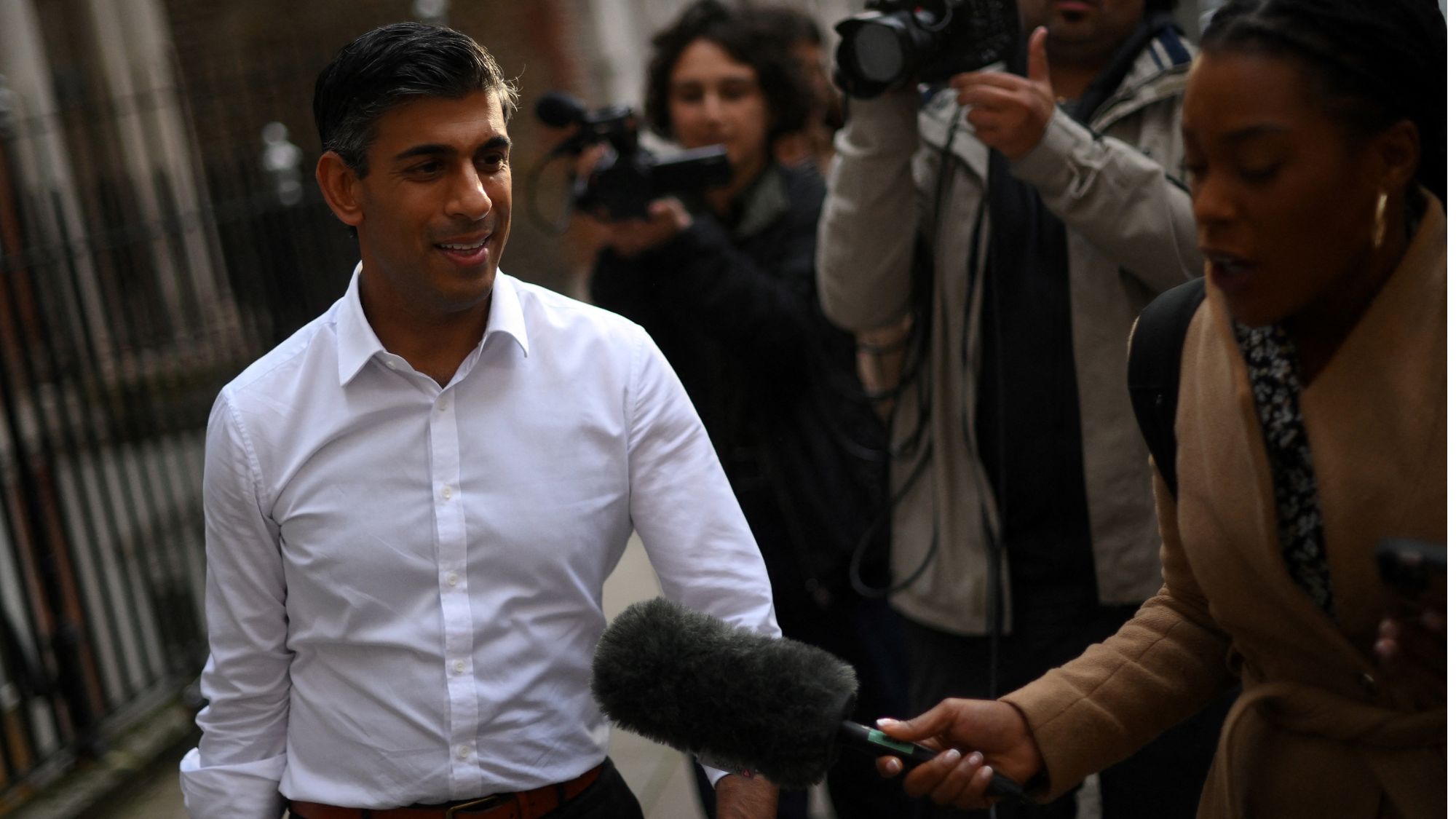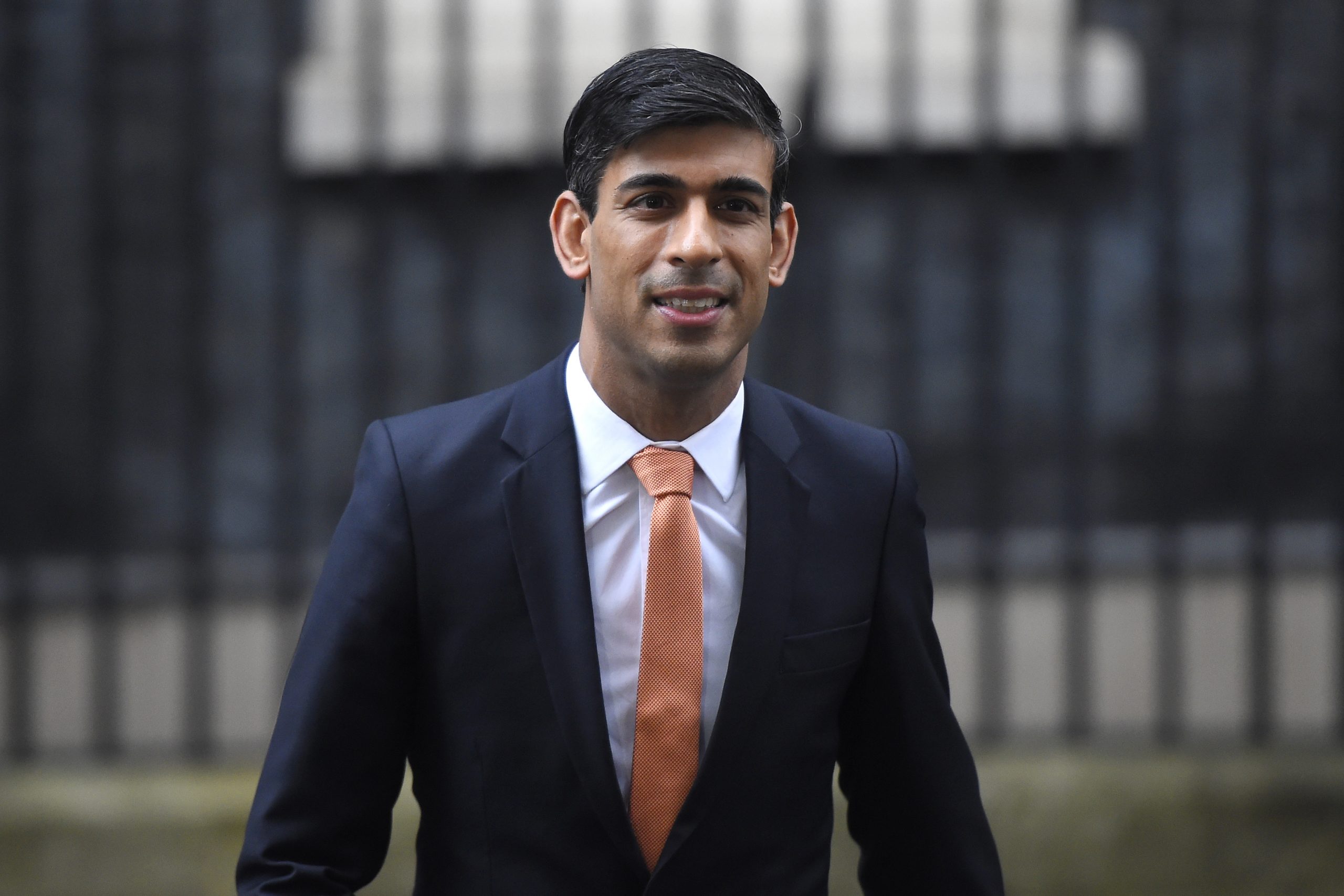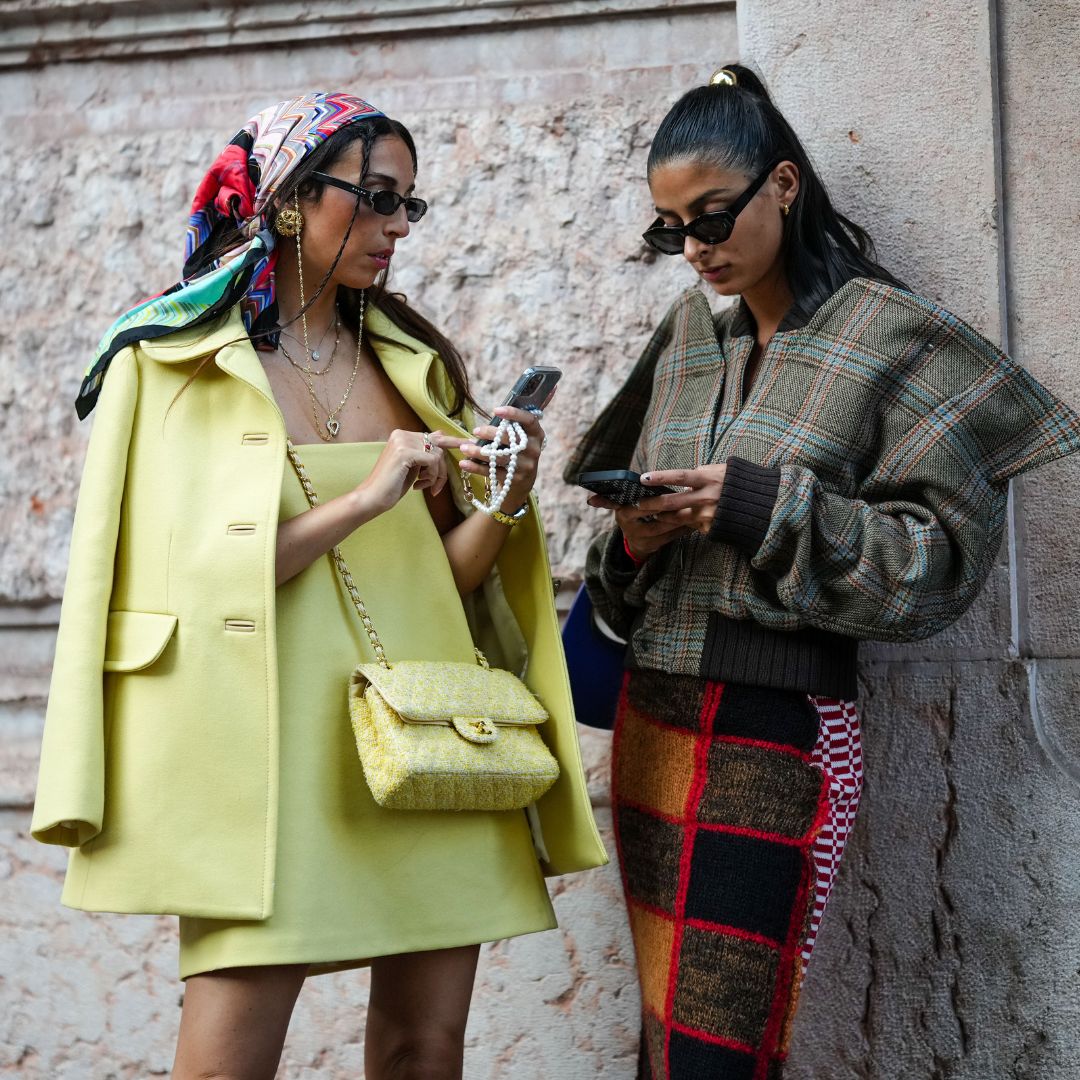MC Meets: Prime Minister Rishi Sunak


This article has been updated since its publication in October 2021.
Rishi Sunak has won the Conservative leadership race and has now become the UK Prime Minister.
The MP for Richmond and former Chancellor of the Exchequer officially entered the leadership contest over the weekend following Liz Truss' resignation. Yesterday, after securing the backing of 193 Conservative MPs and the withdrawal of his two key competitors, Boris Johnson and Penny Mordaunt, he was named the UK's next Prime Minister.
"The United Kingdom is a great country but we face a profound economic crisis," Sunak stated as he announced his candidacy over the weekend. "That’s why I am standing to be Leader of the Conservative Party and your next Prime Minister."
Sunak met with The King today and was invited to form a government, making a speech outside 10 Downing Street.
But what can we expect from the new Prime Minister, and how will his policies impact women? This will hopefully be made clear in the next budget announcement, due on 23 November.
Until then, we look back to one year ago today when MC Features Editor Jenny Proudfoot interviewed Sunak, then Chancellor of the Exchequer, following the announcement of the 2021 Autumn Budget.
Marie Claire Newsletter
Celebrity news, beauty, fashion advice, and fascinating features, delivered straight to your inbox!
Together, they discussed child care, improving street safety and women's access to justice, and what is being done to close the gender pay gap.

What are the key ways in which you hope the Autumn budget will positivity impact women?
I would probably point people to the quite significant extra investment we’re putting into supporting families, especially young families. That was inspired by a lot of work that some of my colleagues and others have done, including the Royal Foundation and the work of the Duchess of Cambridge around the importance of early years. Around those critical first 1001 days in a baby’s life and helping young mothers with that challenging period. We’re going to fund a network of what are called 'Family Hubs' across the country where you bring together all the services that you might need. This includes tackling mental health which we know affects up to 20% of new mums, parenting programmes and a digitised red book as well to improve coordination and help policy, and trying some new different models of health visiting. So there’s lots in there around that agenda which again is something that both my colleagues in parliament and people like the Royal Foundation have highlighted as being an appropriate area of focus, so that’s probably one thing I would talk about. And the other thing I would say is that we cut taxes for the lowest paid yesterday and I think that will make a difference to women and their families up and down the country. If you think about a single mum with two kids who’s working on the national living wage and renting a place, they will be as a result of what we did yesterday £1200 a year better off and I think that will really help. So, there’s lots of stuff in there but those are probably two things that I would highlight to keep it pithy.
Why was Early Years such an important cause for you to recognise in the budget?
Look, I have two young girls and I was very fortunate - I’m married so I was doing it together with my wife, we’re supported by our family and we’re very fortunate financially. And in spite of all of those advantages that we were lucky to enjoy, it was really tough. It was probably one of the hardest things I have done, and given the last year and a half I’ve had, that’s really saying something. I won’t ever forget that period and how challenging it was for both my wife and I. And I thought, 'Crickey, if it’s that tough for us and we’ve got all these things that we’re really lucky to have going for us, this must be really difficult for people who don’t benefit from some of those things'. That just left a lasting impression on me. And as I said, whether it’s colleagues like Andrea Leadsom who has done a lot of research on this or the Royal Foundation, the Duchess of Cambridge’s work and other think tanks, it’s just increasingly clear that those early years are so important to a child’s life. If we can intervene at that stage and support parents at a difficult time, it will make a transformative difference to so many children and young families.
You also announced a commitment to programmes tackling violence against women and girls, rape response and victim services. Can you elaborate on where the money will go?
Yes absolutely. We’re putting in quite a lot of extra money and we’ve been talking about this a lot for a while, so hopefully people will feel reassured that we really want to make progress on all of the issues that you mentioned. We have a strategy for tackling violence against women and girls. There’s a programme called 'Safer Streets' which is probably the one that I would point you to. It's going to receive more funding as a result of what we did yesterday, and that is just about making our streets and open spaces feel safer for women, and whether it’s CCTV or other things, that there’s money to do that. We have got more money to tackle the court’s backlog, especially to improve rape prosecution, but then also something to help victims. We’re going to have a thousand independent victims advisors for people who have suffered from rape, sexual violence or harassment - those types of things. We know that these independent advisors work and that they make an enormous difference to supporting victims so we’re doing that. And there’s other things that my colleagues have spoken about in the past as well - about just improving the process for rape prosecutions where people can get their phones back quicker and practical things like that. But this is clearly an issue that everyone is focused on and I think part of it is men and people in a position of responsibility acknowledging how much of an issue this is and what this feels like for women up and down the country. People in a position to do something about it should act and that’s what we’re doing.
There was no direct mention of the gender pay gap in the budget. Can you reassure our readers that it is in the government’s minds as we look forward?
Yes, absolutely. I wouldn’t say anything about the omission - I think probably because our track record on this has been really good. I’ve spoken about it in the past actually. I know the latest data had a bit of an odd blip in it which we’re just trying to figure out - there's lots of odd things with the statistics at the moment because of what’s going on with the labour market. But generally the gender pay gap is on a massively improving trajectory. The last but one reading had us at a record low and it’s closing in all the right places which is really positive, and of course that’s something that we’re committed to. And it’s not just about pay, it’s about supporting women entrepreneurs as well. That’s why some of the attention that we had on the personal care sector through the crisis was important. I'm probably the first Chancellor to go to a British Beauty Week a couple of months ago because it’s an amazing sector. It’s almost overwhelmingly small businesses and overwhelmingly run/ founded by women entrepreneurs. And it’s a great British success story because all of those businesses are not just growing and creating jobs, but they’re also exporting around the world and combining with really interesting science to create products for the future. So, it’s something we should talk a lot more about and it’s a very female-oriented industry. I’m glad we supported personal care through the crisis, but that’s an important part of the economic story for women as well - making sure that we support sectors like that.

Jenny Proudfoot is an award-winning journalist, specialising in lifestyle, culture, entertainment, international development and politics. She has worked at Marie Claire UK for seven years, rising from intern to Features Editor and is now the most published Marie Claire writer of all time. She was made a 30 under 30 award-winner last year and named a rising star in journalism by the Professional Publishers Association.
-
 Mytheresa is having a secret sale right now and these are the 11 cult items I'm eyeing
Mytheresa is having a secret sale right now and these are the 11 cult items I'm eyeingIncluding the designer bag that was everywhere at Milan Fashion Week
By Clementina Jackson
-
 Prince Harry reportedly extended an 'olive branch' to Kate and William on latest UK trip
Prince Harry reportedly extended an 'olive branch' to Kate and William on latest UK tripBig if true
By Iris Goldsztajn
-
 How Prime Video is protecting Blake Lively amid her new movie promo
How Prime Video is protecting Blake Lively amid her new movie promoAn understandable move
By Iris Goldsztajn